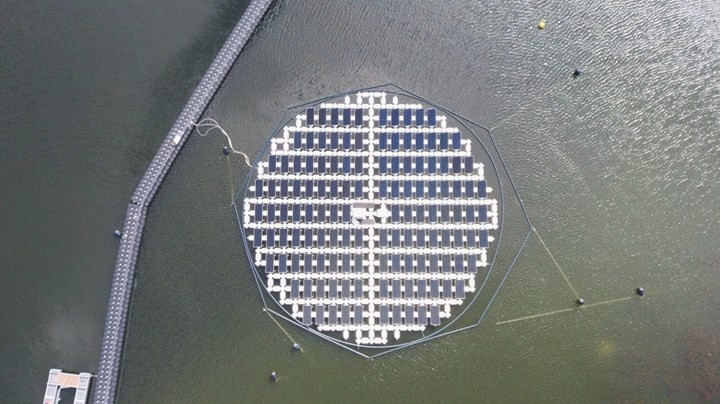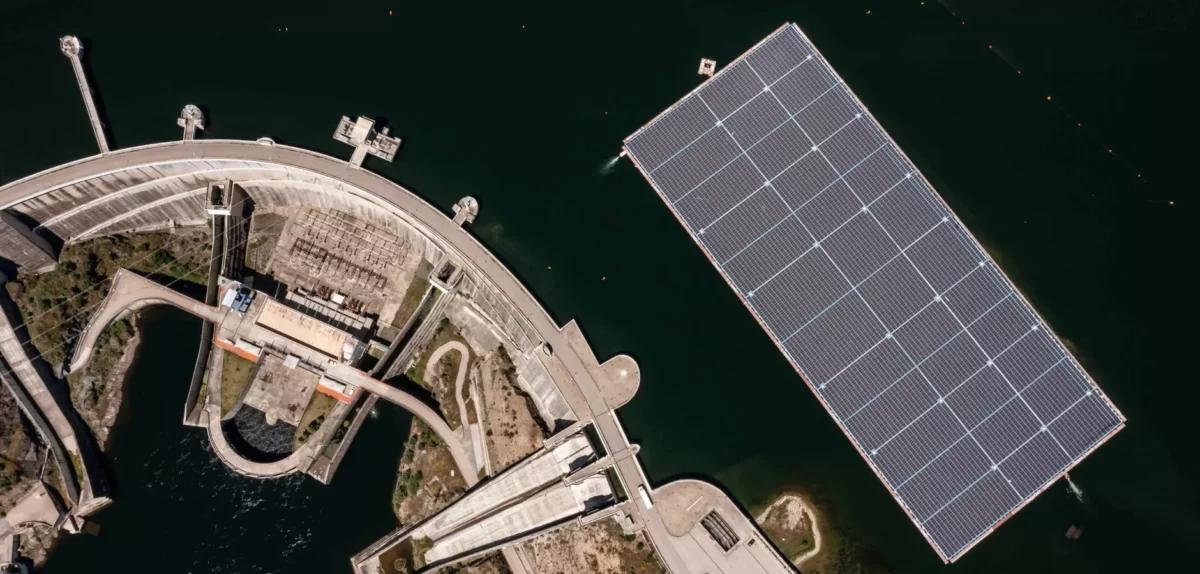The solar island, currently floating on a lake in the Netherlands, is made up of 180 movable solar panels that increase energy production by up to 40 percent. A Portuguese company's sustainable solution is to follow the sun, almost like a tracker, to make the most of its energy. SolarisFloat has developed an innovative floating solar solution that is unlike many solutions installed on bodies of water around the world. With single or dual axis tracking, the floating island is powered by electric motors that consume less than 0.5 percent of the total energy generated. As the BBC explains, the installation, called PROTEVS, is the first to combine floating solar panels with Solar tracking technology.
The island is currently floating in the Oostvoorne Meer, a lake in the southwest of the Netherlands. Consisting of 180 mobile solar panels, PROTEVS has a total installed capacity of 73 kilowatt peak power (kWp) and provides up to 40 percent increase in energy production thanks to its advanced technology that allows its double-sided panels to rotate according to the desired direction. Now we move on to the remarkable details of this content.
Also See: The Fastest, Soft Robot Created
The Company Offers 2 Types of Solutions

The first is PROTEVS+, which includes 180 modules with dual-axis tracking. It is 38 meters in diameter and covers an area of 1,444 square meters. The panels move vertically.
The second solution is PROTEVS Single360, which operates on a single axis. It has PV modules at a constant tilt of 10 degrees and features 360 modules. Protevs Single360 has an installed power of 147 kWp for 410 W panels.
According to Solaris Float, PROTEVS solutions are modular, separable and scalable, with an easy installation process. Because they are detachable, the islands can even be combined to form a floating solar farm. According to the company, these floating solar farms go beyond the environmental impact of precedent. The shadows cast on the floating structure and PV panels result in a "superficial" temperature drop, which is beneficial for the aquatic ecosystem. SolarisFloat claims that evaporation in the water body is reduced by 60 percent.
Secondly, water quality is likely to improve due to the reduction of algae and the proliferation of other microorganisms due to the aforementioned shading effect. This can be further enhanced by the installation of water oxygenation equipment. Such floating solar power plants could be hugely beneficial in the long run, especially considering the space required to install solar power plants. Popular Science cited a study from Leiden University in the Netherlands that estimated the area needed by solar plants. Floating solar power plants are therefore an effective way to make room for other projects that can help fight climate change.





No comments yet for this news, be the first one!...